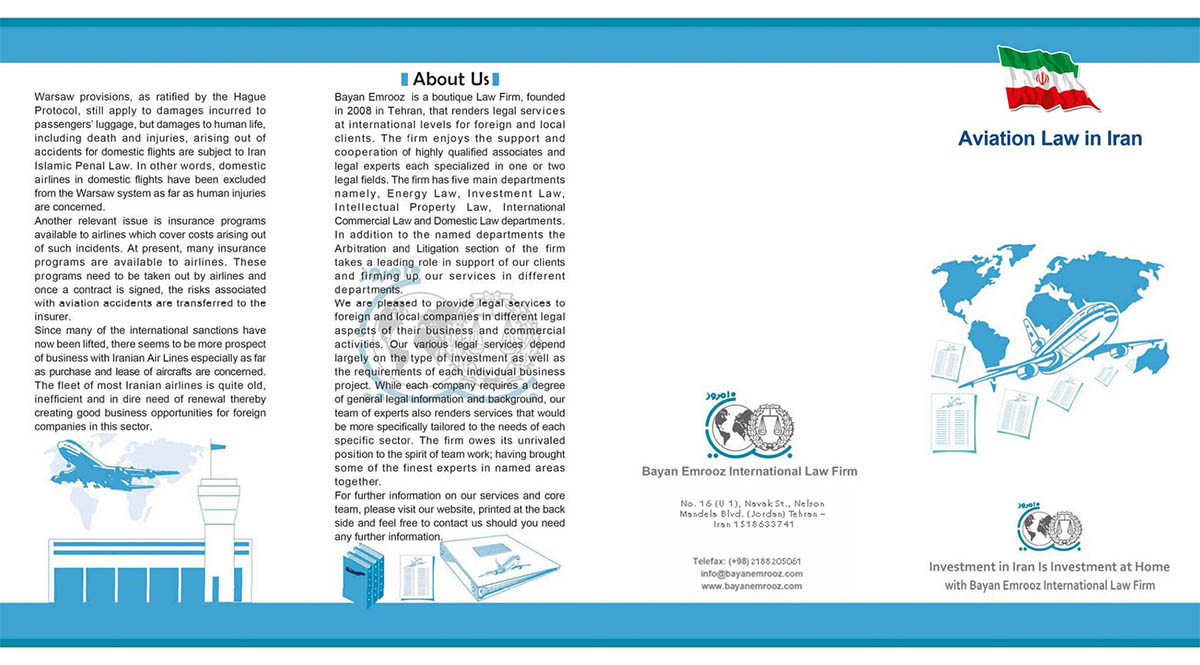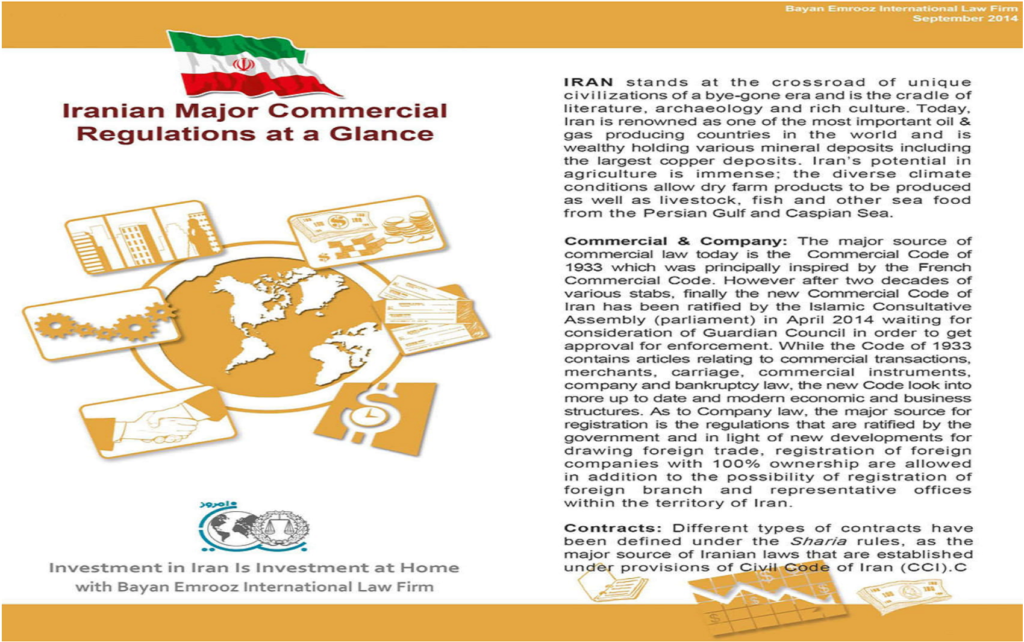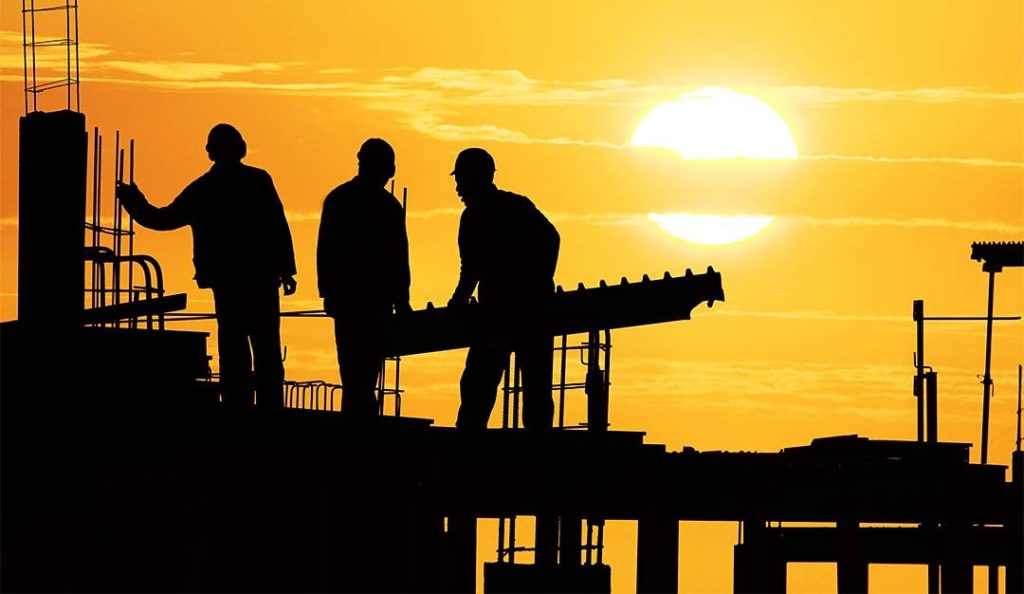Aviation Law in Iran
Intro:
Aviation law is a highly specialized branch of law which addresses all concerns associated with different facets of air travel. There are a number of eminent international conventions that regulate aviation law at a global level. However, countries could have their own national framework. The three main areas of aviation law include regulatory compliance, finances and claims.
Iranian Legal System:
As far as Iran is concerned, Iranian laws in the field of aviation law date back to a long time ago. The main body of law is Civil Aviation Law of Iran as legislated in 1959. This law established the Civil Aviation Organization of Iran (CAOI) and also deals with nationality of aircrafts. According to Article 9 of this law, Iranian airlines have the exclusive right to domestic flights.
In addition to being a founding member state of the Chicago Convention on International Civil Aviation of 1944, Iran is part of the Warsaw system, having acceded to Warsaw Convention and two of its additional protocols, namely The Hague Protocol of 1955 and Guatemala Protocol of 1971. In the Iranian legal system, conventions become part of the Iranian law upon parliamentary validation. Therefore, the legal framework applicable to all travel documents is that of the Warsaw treaty as ratified by The Hague and Guatemala Protocols. Iran is, however, not still a member state to Montreal Convention on Unification of Certain Rules for International Carriage by Air signed in 1999. Montreal Convention could be applicable in cases when foreign airlines belonging to countries that have ratified this Convention are operating flights in Iran. Similarly, the legal framework applicable to Iranian airlines operating anywhere in the world would be that of Warsaw Treaty.
As far as financing, purchase, charter and lease of aircrafts are concerned, the latest directive, issued in 2014, allows only for purchase or charter of aircrafts that are less than 15 years old. This is a deviation from the former situation and is most likely due to the prospect of future alleviation of international sanctions. The new directive has also facilitated imports by obviating much of the existing bureaucracy. Both ‘Dry’ and ‘Wet’ Lease have been allowed for Iranian Air-lines. The air-lines are given deadlines to buy or hire-purchase a set proportion of their aircrafts. There are also technical requirements for aircrafts that need to be met. The leaser must possess a valid A.O.C as well as a valid repair certificate. The foreign registration of the aircraft must be nullified and an English draft of the aircraft M.S must be submitted.
Conclusion:
Claims could arise in case of delay/ luggage loss or aviation accidents. As Iran is a signatory to Warsaw Convention and a number of additional protocols, damages arising from international flights are subject to the Warsaw system. However, after 2012, with the enactment of Iran Civil Aviation Liability Act, damages arising out of accidents for domestic flights are subject to Iran Islamic Penal Law. In other words, domestic airlines in domestic flights have been excluded from the Warsaw system. Another relevant issue is insurance programs available to airlines which cover costs arising out of such incidents.
Bayan Emrooz Law Firm renders services to foreign and Iranian natural and legal entities in the field of Aviation Law. By having an experienced and specialized legal staff, Bayan Emrooz is ready to provide the necessary legal services regarding Aviation Law in Iran.












I love this blog, so big thank you for the effort!